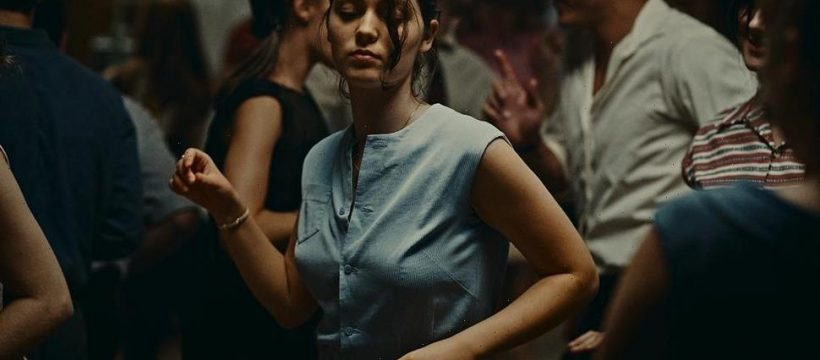In Annus Mirabilis, the English poet Philip Larkin wrote that sexual intercourse was invented in 1963. Life was thus never better, he concluded, than in that year. Those lines strayed into my mind watching L’Événement (Happening), about a student in provincial France named Anne (Anamaria Vartolomei) who realizes she is pregnant during the countdown to her final examinations.
The year is 1963. Larkin watched as sex was invented “rather late for me.” Anne is trying to invent her life. The exam will determine whether she can go to university, leaving behind her provincial college and the neighborhood bar her parents run. This is not about sex at all. The young man responsible barely features; he is dumbfounded, as helpless as she is but, in the end, free to do what he likes. What is happening – the event – is inside her body. It is animal. It is about the blood that doesn’t come and then the blood that does.
Abortion is illegal. Anyone who goes to hospital having had an abortion may be tried and imprisoned – if she survives, of course. Anyone who helps her is also liable to arrest and imprisonment. That includes doctors. The virtue of Audrey Diwan’s Happening, which has just won the Golden Lion at the Venice Film Festival, is that it builds a picture, stone on stone, of what the predicament of pregnancy meant to a young woman’s life in 1963. Trying to vomit in secret, to shower in communal bathrooms without anyone noticing the mounding belly, stealing food from other girls’ lunchboxes and looking – constantly looking – for someone to tell, someone who would tell someone else who might know something, without being branded a slut.
Watch on Deadline
It wasn’t just that it was difficult to get an abortion. It was that abortion could not be mentioned, as a sympathetic but wary doctor points out with emphasis to Anne. Sex could not be mentioned. If you had done it, you didn’t admit it. If you liked it, you didn’t admit it. There is a bar near her student dormitory where they play the latest records and you can dance. “Everyone in here wants the same thing,” says Anne bitterly, as she nurses a beer. “They just won’t say so.”
And when they do, they get it wrong. One of Anne’s friends has read in a dirty magazine of her brother’s something about how a woman might find the best position during sex to feel pleasure. Brigitte has been practicing, as she demonstrates while sitting astride a pillow, masturbating to orgasm in the process. Anne stares blankly, dumbfounded. Brigitte is so naïve, so sheltered from all things sexual that she barely realizes what she had done. She doesn’t know the rules, doesn’t know that you don’t do that in front of people. They all are.
Happening is a bravura piece of filmmaking. It is executed cleanly, precisely, without shying away from anything but without dwelling on it either. When Anne visits a backyard abortionist, we see what is happening as she does, from above, which is to say we don’t see it at all. But we know it is happening, viscerally, as she does. Vartolomei is flawless as Anne. She never cracks, never even sheds a tear, because she can’t let go of her determination. She will solve this problem, even if she has to die doing it.
That anyone should need to risk dying to live is monstrous. Anne doesn’t say that. The film, which is never less than sober and measured, simply reporting the facts of the matter, doesn’t say that either. I’m saying that. Things were not so simple in 1963, Philip Larkin, as you thought at the time. Depending where you live, they are not so simple now. Not for girls.
Read More About:
Source: Read Full Article
